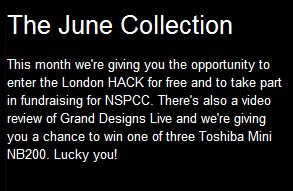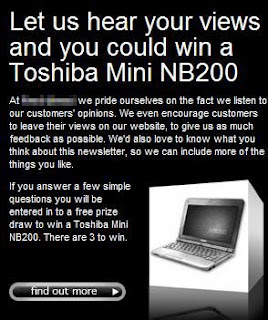There comes a time when you need to
feel the fear and do it anyway. When you want to
change your life in seven days. When you stop hoping a few affiliate links will generate any revenue and decide to actually do something instead.
By you, I mean me, of course.
And so with a spring in my step and a childlike delight at catching the train to London, I set off yesterday to hear
Milo Yiannopoulos talk on the subject of
Getting Entrepreneurial About Journalism.
“Sassy and enthusiastic young writers are quietly earning a living by supplementing their expertise with events and consulting services and by building their reputations as connectors and pundits.”
Hey, that could be me. Enthusiastic, if not sassy.
“There are more opportunities for enterprising writers to make their name and make a living than ever before.”
Excellent news. The making of my name and my living will start anew.
The event promised that Milo Yiannopoulos would share his experiences setting up technology publication
The Kernel, explaining what has worked and what hasn’t.
Indeed he did.
He started the evening at London’s
General Assembly by telling the two or three dozen of us there that he’d talk about his experiences with The Kernel (which launched slightly less than five months ago and has been a financial success) and would then move on to the ‘future of content’ - what people pay for.
It is a myth, Milo said, that writing is profitable. After the pamphleteers of the early 18th century, journalism has been subsidised by advertising and supported by patrons.
Today, he said, the patronage model is becoming relevant again - thanks to paying customers, not rich benefactors.
Quite simply, you need to create content that people like and will pay for.
A moment of joyous hyperbole (it was hyperbole, wasn’t it?) saw
Copyblogger’s business model described as “immoral” as Milo offered his own perspective on writing for profit.
Again, it’s simple. You need content that will do one (or both) of two things.
You need to educate, to address controversy, to introduce something new... to make people gasp.
And you need to make people laugh, because fundamentally we’re all miserable.
The Daily Mail was offered as an example of a publication that was getting some things right; addressing vulnerabilities and lifting people up to give a vision of ‘better’.
But ultimately there’s no money in ‘reporting’, Milo said. People put money behind individuals, not brands. Which means, when you’re writing editorial, you need to ask yourself “What can I do that nobody else can do?”
It seems the secret to making money from content isn’t a secret.
Make people gasp. Make people laugh. And do it in a unique way.
We gasped. We laughed. We went home.
Since last night I’ve seen a little online chatter about the event, with some people relatively happy and others less so.
Did the event deliver what it promised? Well, despite the title, all it ever promised was Milo’s experiences in setting up The Kernel. So yes, I’d argue it did.
Did it deliver all the title suggested? In an object lesson, you might say. To get entrepreneurial about journalism, you talk about your unique personal experience, you inform your audience, you entertain your audience... and you charge them £20 a head.
UPDATE: I receive an email on Friday afternoon.
Hey Everyone,
Thank you for attending last night's Getting Entrepreneurial About Journalism class with Milo Yiannopoulos. GA education is about delivering high quality, practical, and actionable insights from top practitioners in the field. Last night's course did not meet the high standards that we set for ourselves and that you should expect from us. We have gone ahead and refunded your money and we hope that you'll accept our sincerest apologies. Our Education Team works hard to keep these slip-ups rare, and we hope you'll come check out another class soon.
 1. Discover what people care about
1. Discover what people care about







